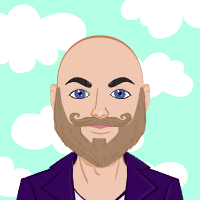Austism "Chinning" - Advice/Help
Henrys_Dad
Online Community Member Posts: 1 Listener
Hi All,
My son is 12 and has had a diagnosis of ASD (with Sensory Processing Disorder) since being very young. He's a healthy happy boy, surrounded by lots of love, and is really starting to flourish.
His challenges present themselves (in the main) as communication difficulties, and although his speech is really coming on (as is his reading ) this is still very much the focus of the support he requires.
) this is still very much the focus of the support he requires.
However, for a long time, he has relieved sensory stimulation/stress and emotion by applying pressure to his chin and jaw. I believe that this is called "Chinning". His usual behaviour is that he pushes the heel of his thumb into his chin when experiencing sensory stimulation or excitement. It's not a huge problem, and we're not embarrassed or concerned by this behaviour at all.
What is becoming a bit of an issue is that his chin is starting to become sore, swollen, and almost bulbous, and I wondered if anyone else has this issue, and consequently any advice (aside from visiting the GP/Health care pros).
Many thanks in advance.
My son is 12 and has had a diagnosis of ASD (with Sensory Processing Disorder) since being very young. He's a healthy happy boy, surrounded by lots of love, and is really starting to flourish.
His challenges present themselves (in the main) as communication difficulties, and although his speech is really coming on (as is his reading
However, for a long time, he has relieved sensory stimulation/stress and emotion by applying pressure to his chin and jaw. I believe that this is called "Chinning". His usual behaviour is that he pushes the heel of his thumb into his chin when experiencing sensory stimulation or excitement. It's not a huge problem, and we're not embarrassed or concerned by this behaviour at all.
What is becoming a bit of an issue is that his chin is starting to become sore, swollen, and almost bulbous, and I wondered if anyone else has this issue, and consequently any advice (aside from visiting the GP/Health care pros).
Many thanks in advance.
0
Comments
-
Heya @Henrys_Dad and a warm welcome to the community. I'm glad to hear there's great progress with your sons speech.

Have you tried replacement objects for stimming, such as little beanbags or soft toys? Often they can be used to apply the pressure your son wants, without being damaging to the soft tissue of the face.0 -
I don't have experience with this exactly, but I know that weighted plush toys exist. That might be a better way to bring something that can provide pressure without being as bulky as a weighted blanket. It probably wouldn't look too weird for him to carry a plushy either. Plenty of kids need a comfort object, especially disabled kids.
0
Categories
- All Categories
- 15.8K Start here and say hello!
- 7.5K Coffee lounge
- 105 Games den
- 1.8K People power
- 157 Announcements and information
- 25.2K Talk about life
- 6.2K Everyday life
- 506 Current affairs
- 2.5K Families and carers
- 895 Education and skills
- 2K Work
- 578 Money and bills
- 3.7K Housing and independent living
- 1.1K Transport and travel
- 642 Relationships
- 1.6K Mental health and wellbeing
- 2.5K Talk about your impairment
- 878 Rare, invisible, and undiagnosed conditions
- 938 Neurological impairments and pain
- 2.2K Cerebral Palsy Network
- 1.2K Autism and neurodiversity
- 40.7K Talk about your benefits
- 6.1K Employment and Support Allowance (ESA)
- 20.2K PIP, DLA, ADP and AA
- 9.1K Universal Credit (UC)
- 5.3K Benefits and income
